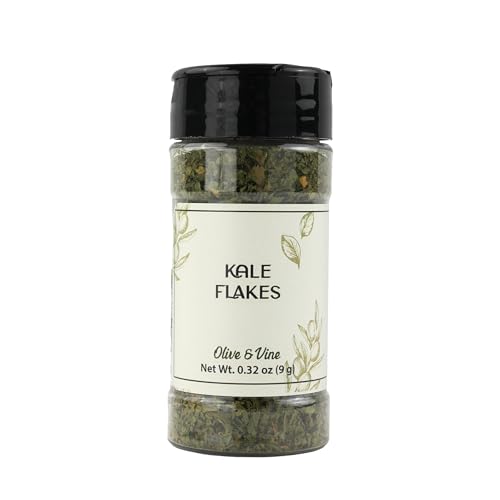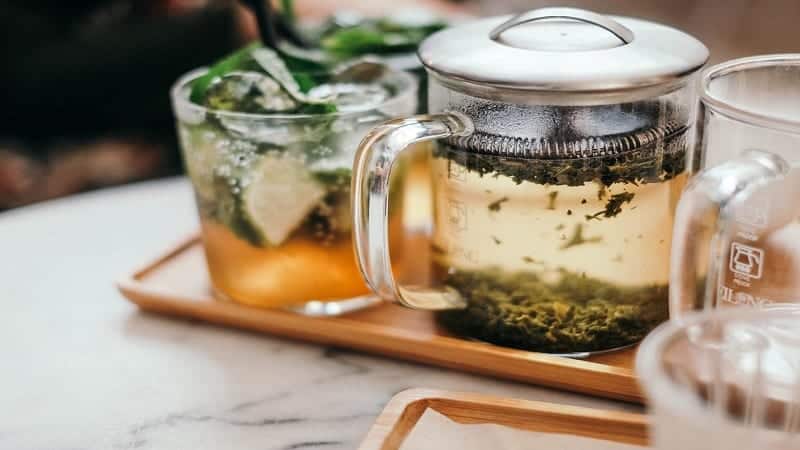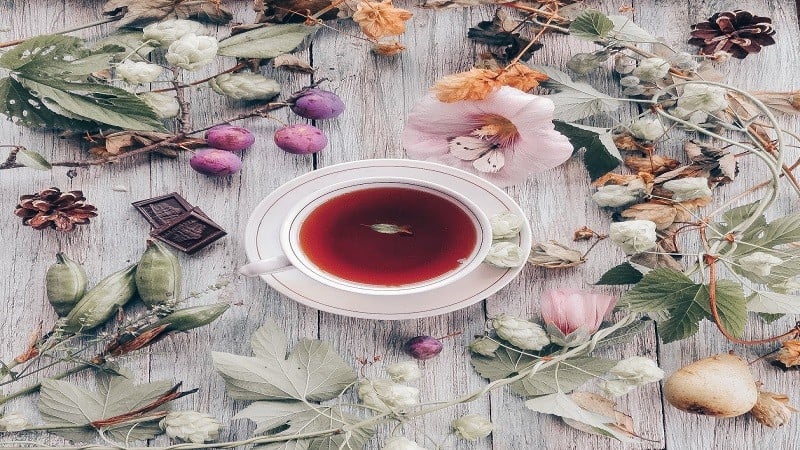Frequent urination can easily become a very big hindrance in your life. Having to wake up multiple times in the night to use the bathroom ruins any chances of a good night’s sleep, or having to plan bathroom breaks while going on a trip or to an event can often take all the fun out of the planning. It can be especially frustrating when you have to go somewhere and don’t know if a bathroom will be accessible.
What are the causes of frequent urination? What foods and natural supplements for frequent urination can you add to your diet? And what foods should you be avoiding? Are there any other ways to help with frequent urination? Let’s try and answer all of these questions.
Causes of Frequent Urination
Having an overactive bladder means that your bladder is not able to properly store urine, and therefore it needs to be relieved more often than usual. You’ll know that you have an overactive bladder if you have to go to the bathroom frequently or cannot hold your urine for short amounts of time. You may also need to use the bathroom many times throughout the night and may experience some leakage when you need to urinate.
So what are the causes of an overactive bladder and frequent urination? It can often be a symptom of some other underlying disorder. Parkinson’s disease, kidney disease, and diabetes all lead to needing to urinate more frequently. It can also be because of weak pelvic muscles, some previous surgery, because of childbirth, or if you are taking some particular medications.

However, for a few of us, there may even be no underlying condition that leads to an overactive bladder, and there is no discernable cause for it. This doesn’t mean that you should worry, though, because having an overactive bladder is very common. There are multiple ways to treat and manage it, from the foods and supplements you take to different medications and exercises.
Natural Supplements for Frequent Urination
When it comes to natural supplements for frequent urination, we have a few foods that you can increase your intake of, some herbs that can be helpful, and vitamins and nutrients that you can add to your diet. Let’s take a look at the different options for you to explore:
1. Capsaicin
Capsaicin is a natural remedy that comes from chili peppers and is helpful in reducing the symptoms of an overactive bladder. By including it in your diet, it helps you in needing to urinate less frequently and also helps reduce urine leakages.
Capsaicin is found in the flesh of peppers, not in the seeds. You can find it in green and red chili peppers, jalapeno peppers, and bell peppers. You can add these peppers to your diet by using them in curries, salads, salsas, and stir-fries.
2. Corn Silk
Cornsilk, or Zea Mays, is the silky fiber found at the top of an ear of corn. It is full of vitamins and anti-oxidants. It has been used for treating urinary tract infections (UTIs) as it soothes the urinary tract and can also be used to reduce the symptoms of an overactive bladder.
Corn silk can be used in the form of tea or supplements. Try the Nature’s Way Premium Herbal Corn Silk (ASIN: B005U912I0) dietary supplement pills or the Horbaach Corn Silk Herbal Supplement (ASIN: B07Z8FZSV8).
3. Ganoderma Lucidum
Ganoderma lucidum is a type of mushroom that has been used in traditional Chinese medicine for over two thousand years. It has been used to treat different diseases and illnesses like hepatitis, hypertension, hypercholesterolemia, and certain kinds of cancers. Consuming mushroom has been seen to lower the hormones that lead to prostate growth in men, which is a leading cause of incontinence in men.
4. Gosha-jinki-gan (GJG)
Gosha-jinki-gan is a traditional Chinese blend of 10 different herbs. It is made up of t is composed of Rehmanniae radix, Achyranthis radix, Corni fructus, Moutan cortex, Alismatis rhizome, Dioscorea rhizoma, Plantaginis semen, Hoelen, processed Aconiti tuber, and Cinnamomi cortex.
GJG acts on the nerves surrounding the bladder and reduces the need to urinate frequently. You can get the traditional herb blend in the form of herbal supplements. Try the Bladder Regulator, Gosha Jinki Gan An Effective Herbal Bladder Control Support Formula (ASIN: B08178SM3C) or the Night Urination Herbal Supplement for Kidney and Urination (ASIN: B076Y1F552).
5. Hachi-mi-jio-gan
Hachi-mi-jio-gan is another traditional Chinese herbal blend that is made up of eight herbs. It is composed of Rehamanniae radix, Corni fructus, Dioscorea rhizome, Alismalis rhizome, Hoelen, Moutan cortex, Aconitii tuber, and Cinnamomi cortex. Many of these ingredients overlap with those in GJG.
Hachi-mi-jio-gan has been used to regulate bladder muscle contractions. By easing the muscle contractions in the bladder, the bladder is able to hold more urine and therefore reduces the need to urinate frequently. Hachi-mi-jio-gan can be found in the form of supplements.
6. Resiniferatoxin
Resiniferatoxin comes from the native Moroccan cactus plant Euphorbia resinifera and is similar to capsaicin in that It has a pepper-like burn. It works by blocking the signals that your nerves send from the bladder to the brain. When these nerves are blocked, the brain does not get the signal that your bladder needs to be released, meaning that you would have to urinate less frequently. It desensitizes the bladder and can also lead to increased bladder capacity.
7. Vitamin C
An increased vitamin C intake can help increase urinary storage and reduce urine leakages (incontinence). Vitamin C from different food sources can also reduce urinary urgency and help with holding your urine for longer periods of time.
Many foods that are easy to add to your diet are rich in vitamin C. Citrus fruits like oranges, grapefruit, limes, and lemons have high quantities of vitamin C and are delicious and easy to access. Having a glass of orange juice can be highly refreshing, and adding a spritz of lemon or lime to most dishes elevates the flavors of your food.
Vitamin C is also found in berries like strawberries, raspberries, and blackberries. Leafy greens, broccoli, green peppers, and sweet potatoes also have high vitamin C contents.
While vitamin C from foods can help deal with frequent urination, try to steer clear of vitamin C supplements with high dosages, as they can be associated with worsening symptoms.
8. Vitamin D
According to studies, vitamin D is essential for people suffering from pelvic floor disorders or weakened pelvic floor muscles. Lower levels of vitamin D can be linked with a higher risk of pelvic floor disorders. Vitamin D is also essential for heart health, bones health, and a stronger immune system.
There are three ways to get vitamin D naturally: sunlight, food, and supplements.
Vitamin D is found in very few foods. Some good sources of Vitamin D that you can incorporate into your diet include fatty fish like wild-caught mackerel, salmon, and tuna. Milk sometimes has Vitamin D added to it. One eight-ounce serving of milk usually has 25% of the daily value of vitamin D that you need.
Other than from food, you can get your daily requirements from supplements. Try out the NatureWise Vitamin D3 Supplements for Healthy Muscle Function, Bone Health, and Immune Support (ASIN: B00GB85JR4).
9. Magnesium
Magnesium regulates many functions in the body, including enzyme functions and the regulation of nutrients like copper, zinc, and vitamin D. It helps the muscles and nerves in the body function correctly and improves their health. Magnesium has also been seen to help with the symptoms of an overactive bladder.
Magnesium can be found in plenty of foods and is easy to add to your daily diet. You can increase your intake of green vegetables, legumes, and whole grains. You can also have more dairy products, like milk, cheese, and yogurt.
If you want to add magnesium supplements to your diet, try the Puori Organic Magnesium Zinc Supplement (ASIN: B071S66Y49) pills, or the Nature Made Magnesium Citrate (ASIN: B00CU3SX4K) daily supplements.
10. Fiber
The muscles and nerves that control bladder movement and bowel movement have a close relationship. If you are constipated or have difficulty regulating your bowel movements, this can put added pressure on your bladder and result in an overactive bladder and frequent urination. Fiber is essential for helping you to build more bulk in your stool and for regular, healthy bowel movements.
You can get plenty of fiber from different foods that can be incorporated into your diet. Some foods with high fiber content include lentils, oats, barley, bran, wheat, and beans. If you are not able to get enough fiber from your diet, we recommend you try the MyFy Natural Prebiotic Fiber Supplement Powder (ASIN: B082XBPY7G), which you can add to any beverage like tea, coffee, or hot water.
Foods to Avoid
If you suffer from an overactive bladder, there are some foods and beverages that you should try to avoid and cut out of your diet as much as possible. Coffee and other caffeinated drinks should be avoided at all costs. Coffee is a diuretic, meaning that it results in frequent urination. It affects certain hormones in your body, which signal to the kidneys that they should not absorb water, which means that your body is producing more urine.
Carbonated drinks like sodas, sparkling water, and energy drinks also increase the need to urinate, as do alcoholic drinks. Like coffee, they are all diuretics and therefore should be avoided if you want to control the symptoms of an overactive bladder.
You might also benefit from removing certain foods from your diets, such as tomatoes and tomato-based products, foods that have artificial flavoring, and foods that have artificial sweetening.
Other ways to help
Other than foods, herbs, and natural supplements for frequent urination, there are some exercises that you can do to help reduce the symptoms of an overactive bladder.
Pelvic floor exercises can help strengthen the muscles in the pelvic area and the muscles of the bladder. They also reduce involuntary contractions of the muscles. These exercises are also known as Kegel exercises and give you more control over starting and stopping urination, which reduces urine leakages.
You can also try a process called bladder retraining. This is a process by which you train your bladder into working a certain way and gain more control over the muscles in your bladder. Keeping a journal of how often you use the bathroom, delaying urinating when you feel the urge to go, and scheduling your trips to the bathroom are the steps you need to practice. By doing this over six to eight weeks, you can train your bladder to hold for longer periods of time and reduce the frequency with which you need to urinate.
There is also the option of taking medication to reduce frequent urination. There are some options for over-the-counter medications that help relax the muscles of your bladder. However, it would be best to consult a doctor before you take any medications.
Our Final Thoughts
Having an overactive bladder and needing to urinate very frequently can be quite difficult to deal with, especially when it starts to affect your sleep at night or your ability to go out to different places.
When it comes to treating and dealing with the symptoms of an overactive bladder, there are quite a few options. Along with exercises, lifestyle changes, and different medications, your diet plays a big role in your health and in preventing different symptoms. We hope that our list of 10 natural supplements for frequent urination was helpful and that you will incorporate the foods, herbs, vitamins, and nutrients into your daily diet.






















